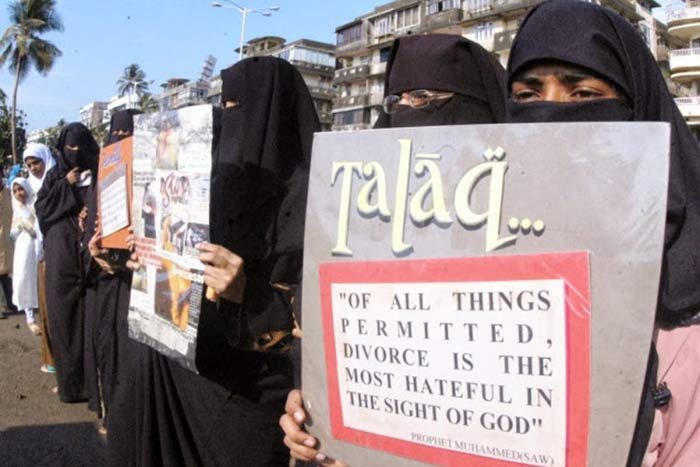Triple talaq is the “worst” and “not a desirable” form of dissolution of marriage among the Muslims, even though there were schools of thought which called it “legal”, the Supreme Court observed today.
The second day of the day-long hearing on the matter also saw two veterans, jurist Ram Jethmalani and former Union Minister and Islamic scholar Arif Mohammad Khan, coming out all guns blazing against the practice of triple talaq.
A five-judge constitution bench headed by Chief Justice J S Khehar said there are “school of thoughts (which) say that triple talaq is legal, but it is the worst and not a desirable form for dissolution of marriages among Muslims.”

The remark was made by the bench when senior lawyer Salman Khurshid referred to the various schools of thought and the stand of All India Muslim Personal Law Board (AIMPLB) that triple talaq was “abhorrent”, yet valid.
While Jethmalani attacked the practice on various constitutional grounds including the right to equality and termed it “abhorrent”, Khan said it was akin to the pre- Islamic era practice of burying a female child alive in the Arabian region.
Khan, who had quit Rajiv Gandhi’s cabinet over differences in handling the Shah Bano case, was at his best while representing All India Muslim Women Personal Law Board.
He said the whole Shariat law has been distorted as “Shariat is the Holy Quran and not the opinion of these people (clerics). The Holy Quran considers the importance of family and it provides four steps before pronouncement of divorce.”
“Triple talaq is far from being fundamental and very far from being sacramental to Islam. It violates every good thing which Islam prescribes. What we are seeing in the form of triple talaq is similar to the pre-Islamic era practice where female infants were buried alive,” Khan told the bench which also comprised Justices Kurian Joseph, R F Nariman, U U Lalit and Abdul Nazeer.
Marriage is the only aspect which is extensively dealt in holy Quran that lays down the procedure for divorce, and various schools of thought have distorted the tenets of the holy book “to their liking”, he said.
“Everything you need is in the Quran. If you need more, then look at the life of the Prophet and if you still need more, then use your own good sense,” he said.
“We can change the law, but not the habits of the society. Untouchability was banished by the Constitution, but it stays with us,” Khan said.
Jethmalani said “the right of triple talaq is available only to the husband and not to the wife and it breaches the Article 14 (Right to Equality) of the Constitution.”
“There is no saving grace for this method of granting divorce. One-sided termination of marriage is abhorrent and avoidable,” he said, adding that Article 15 of the Constitution prohibited discrimination on the grounds of religion, race, caste, sex or place of birth.
It is a settled proposition that a law can be made to improve the situation of women and not to deprive them of their rights, he said.
The bench intervened and said it was not dealing with the state laws, but rather discussing personal law.
Jethmalani said triple talaq was a discrimination on the ground of sex and this practice was abhorrent to the tenets of holy Quran and no amount of advocacy can save this “sinful” practice which is contrary to constitutional tenets.
How can a woman be allowed to become ex-wife only because her husband wants and this is “the highest kind of unconstitutional behaviour”, the noted jurist said.
He said that all laws have to be in conformity of the constitutional provisions and the pre-Independece era Act on Muslim marriage has to be made applicable to all Muslims, irrespective of sects.
The bench then said that the law cannot be made applicable to all sects of Muslims and observed: “Can Hanafi law be made applicable to Shias. The answer is ‘no'”.
Jethmalani then referred to the constitutional provisions, saying the state shall endeavour to make the Uniform Civil Code (UCC) and the present issue should be considered in that light.
He said there were political differences in achieving UCC but while dealing with the issue of husband and wife, the court should keep the constitutional scheme in mind.

















